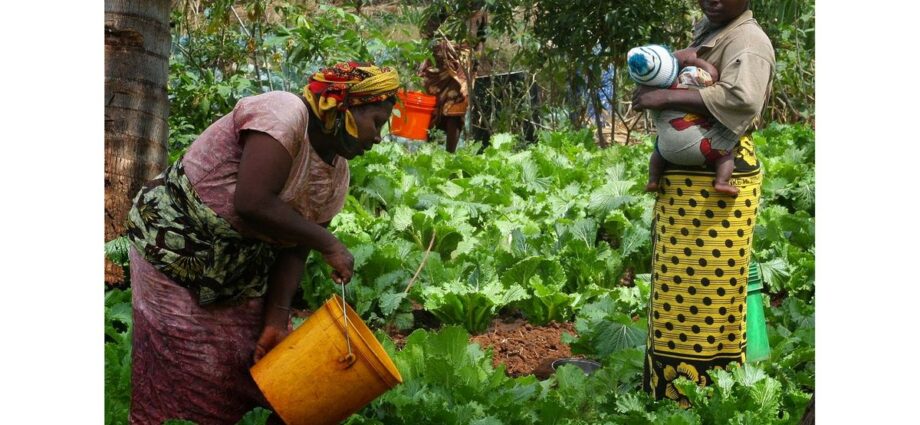Arusha. Dutch investors have invested a total of €8.4 million (Sh28.3 billion) in the production of high-quality vegetable seed exports in Tanzania.
The investment enables Tanzania to earn revenues through seed exports.
The executive director for the Tanzania Seeds Trade Association (Tasta), Mr Baldwin Shuma, said here at the weekend that the investment has also generated 3,000 jobs, primarily benefiting women and young girls on production lines and in sorting units.
Mr Shuma was addressing the National Budget Analysis and Regulatory Seminar to update Dutch investors on tax issues and regulatory changes organised by the Tanzania Horticulture and Potato Seed Platform (THPSP), the Tanzania Horticultural Association (Taha), and Tasta in Arusha.
The Dutch footprint in Tanzania’s horticulture goes further, with 80 companies entrenched in the northern and southern highlands, churning out horticultural products for global markets.
These firms have collectively spawned around 24,000 local jobs, predominantly for women and youth, fortifying community livelihoods and igniting economic growth.
“This Dutch-Tanzanian partnership is more than just business; it’s a catalyst for economic transformation, positioning the Netherlands as a pivotal investor in Tanzania’s horticultural success story,” said Mr Shuma.
For him, Tanzania could become a beacon for investment and business sustainability by implementing easy and fair tax regimes.
“By creating a conducive environment for existing investors, they will become our global ambassadors in our painstaking efforts to attract more investment,” noted Mr Shuma.
Dutch investors in Tanzania’s horticultural industry have showcased exemplary commitment through intensive capital investments and the deployment of cutting-edge technology.
They are instrumental in skill transfer and innovation, thereby increasing efficiency among local farmers.
The introduction of improved seeds has notably enhanced agricultural yield, benefiting local economies and reinforcing the viability of Tanzania as a fertile ground for investment.
Indeed, Dutch investors are playing a critical role by not only enhancing productivity but also uplifting the socio-economic conditions of the local population.
“Their success in Tanzania demonstrates the importance of creating robust, fair, and transparent tax regimes. By doing so, Tanzania can attract more such investors, ensuring sustainable growth and development in various strategic sectors,” Mr Shuma explained.
Tanzania’s journey towards creating a robust investment environment is well supported by the commitment of existing investors like the Dutch.
“Enhancing tax structures to be more investor-friendly will undoubtedly complement governmental efforts to attract more stakeholders, thereby solidifying Tanzania’s position as a premier destination for global investment,” he explained.
Speaking at the same round table discussion, the Agricultural Counsellor for Kenya and Tanzania from the Kingdom of the Netherlands, Mr Bart Pauwels, shed light on some of the key challenges and opportunities that foreign companies encounter while operating abroad.
“Foreign companies often face challenges that differ significantly from those they encounter in their home countries,” Mr Pauwels stated.
“Every country has its own specific rules and regulations, and navigating these can be quite daunting.”
To address these challenges, he highlighted the Dutch government’s commitment to making business operations as smooth as possible.
“Informing companies on relevant policies and connecting them with key stakeholders are among our top priorities,” Mr Pauwels noted.
“This facilitates ease of doing business and promotes mutual growth.”
This perspective underscores the significance of collaboration between governments and institutions to support foreign companies.
By maintaining strong working relationships, regulatory bodies and investors can ensure sustained growth and innovation within the industry.
PwC Partner Mr Joseph Lyimo provided insights into recent legislative changes in Tanzania.
“The Tanzania 2024/2025 budget has introduced a significant reduction in the time required for VAT refunds to just 30 days,” he announced.
To impose a rule for VAT refunds to be paid within 30 days from the date of submission of the refund applications. This measure aims to fast-track the refund process.
Taha has been a vocal advocate for this change. Since 2020, the association has highlighted the struggles of numerous horticultural companies grappling with unsettled VAT claims that have severely impacted their cash flow.
Additionally, the government has provided a waiver for radiation fees and a certificate from the food crops exported to countries with no requirement for a radioactivity analysis certificate.














